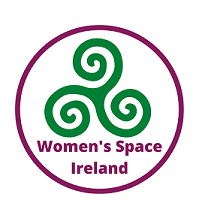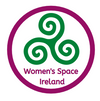A few days ago we learnt that an independent report commissioned by the University of Essex found that UK lobby group Stonewall gave it “incorrect and potentially illegal advice on transgender issues” according to a report by the BBC.
Akua Reindorf, a barrister who specialises in discrimination laws, was asked to review a decision by Essex University — a Stonewall champion — to drop speakers who had been accused of transphobia, The Sunday Times reported.
“The university’s transgender policy advised that it was unlawful under the Equality Act 2010 to discriminate against someone based on their gender identity or trans status but Reindorf pointed out that the act protects an individual who has undergone, is undergoing or proposes to undergo gender reassignment.”
Here in Ireland the Irish Human Rights and Equality Commission (IHREC) says that
“Transgender persons are protected under the gender ground for the purpose of equality legislation. Specifically, the gender ground means that you are entitled to equal treatment whether you are a man, woman or transgender person.”
Yet despite this the IHREC recommended to the Citizens Assembly in March 2020 that

The reference cited for this is

This appears to suggest, as in the UK, that the protection is afforded to those who have undergone gender reassignment, echoing what Akua Reindorf found in relation to the 2010 Equality Act in the UK.
The IHREC was asked on 7th May
“If transgender people are already covered by our equality legislation why would the IHREC recommend that 'The Commission recommends amendment of the equality acts to explicitly prohibit discrimination against transgender, non-binary and intersex people'?”
No response has yet been received.
Freedom of Information requests to the IHREC
In June 2020 a request under FoI was made to the IHREC to ask for copies of communications regarding any review of the Employment Equality and Equal Status Acts "with a view to ensuring that transgender people have explicit protection within the equality grounds”.
The IHREC replied that "I am sorry to inform you that we cannot locate any such records and that I must therefore refuse your request."
The IHREC was also asked, through a Freedom of Information request last December, for a copy of correspondence, reports and references to the research carried out by the IHREC "into how it concluded that those with VSDs (intersex) require protection from discrimination as proposed in your submission to the Citizen's Assembly last March.”
The IHREC official responding said that he had “liaised with members of the IHREC Senior Management Team, who in turn conducted a search of digital files, including shared drives. Following this process, one record relating to your request was identified. Accordingly, one record is now being made available to you in the form of electronic copy, attached to this email.” This was a draft annotated table of contents of the IHREC's submission to the Citizen's Assembly.
The IHREC also provided a link to its 2016 Observations on the General Scheme of the Equality/Disability (Miscellaneous Provisions) Bill which has several references to “intersex” and to TENI, the Transgender Equality Network of Ireland which it appears to have used as an authority on the subject of those with DSDs/VSDs ("intersex"). e.g. it says
“TENI defines intersex individuals by reference to ‘sex characteristics (such as chromosomes, genitals, and/or hormonal structure)’.”
Differences of Sex Development/Variations of Sex Development ) are not related to “identity”.
DSD is an umbrella term used to describe around 40 different physical conditions affecting the reproductive and genito-urinary development of a baby in the womb.
There's no reference in this report to any consultation with an organisation such as DSD Families in the UK set up in 2011, which the IHREC might have consulted before producing its report.
In its 2016 Observations the IHREC itself mentions the maxim "These provisions enshrine the principle of ‘nothing about us without us’, commonly invoked by the disability rights movement, not least during the negotiation of the CRPD." (Convention on the Rights of Persons with Disabilities)
Yesterday we learnt that the UK's Equality and Human Rights Commission, the EHRC has not renewed its membership of Stonewall's Diversity Champions scheme. The BBC reported that the EHRC says it told Stonewall it would be leaving the Diversity Champions scheme two months ago.
Perhaps it's time that the IHREC also starts to cast its research net somewhat wider on gender identity ideology issues which are already having an impact on Irish society – such as men in women's prisons or the proposed change to mixed sex toilets in our schools. Redefining protections under our equality legislation deserve not just debate but consultation with all stakeholders. This is all the more urgent when such changes pose a risk to the safety, wellbeing and rights of women and girls in this country in such plans as to



